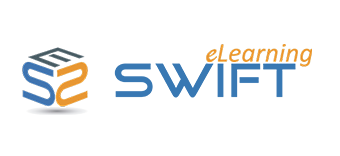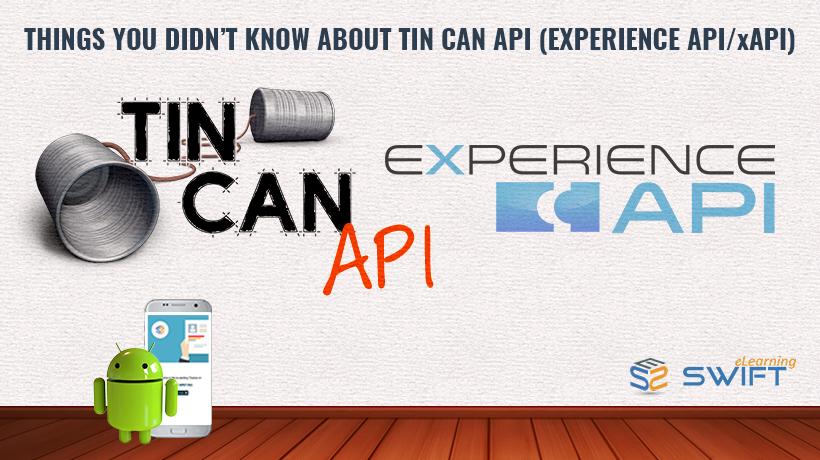Things you didn’t know about Tin Can API (xAPI, Experience API)
What is Tin Can API, xAPI, or Experience API?
Tin Can API, xAPI or Experience API, is a technology that tracks and records learning experiences, providing a more comprehensive and versatile approach to learning data than traditional eLearning standards.
Before delving into this blog, let’s familiarize ourselves with the terms SCORM and LMS to enhance our understanding of the topic.
What is SCORM?
SCORM is a set of standards for eLearning content that ensures compatibility and interoperability, allowing online courses to be easily shared across different learning platforms.
What is a Learning Management System (LMS)?
A Learning Management System (LMS) is a centralized software for administration, documentation, tracking, reporting, and delivering educational courses or training programs.
Tin Can API, the successor to SCORM has been making news in the eLearning industry for a while due to its unique features such as offline tracking, tracking learner experience, reducing the need for an LMS, etc. In this blog, we will majorly focus on things that most of us aren’t aware of – Demystifying Tin Can API.
Naming Confusion:
Tin Can, Experience API and xAPI all these three are same. Many of us often misunderstand it as 3 different APIs. So, what’s the story? Why 3 names for the exact same thing?
This is because, originally Tin Can was developed by Rustici Software as a research project in collaboration with ADL (Advance Distribute Learning) and the project was named as “Tin Can”. When the project was made official by ADL it was named as Experience API, in short, xAPI. But, Tin Can was already widely adopted and came into commercial use even before it was launched. So, the name Tin Can is stuck since then. It is a matter of choice to call it with either of names as long as you know that both of them are same.
No Need of LMS? How do We Keep Track Then?
We often hear people saying Tin Can doesn’t need an LMS to run eLearning course! Sure, it excites us. But, this statement gives rise to questions like:
- If there is no LMS where will our courses be hosted?
- How are we going to track our courses without any LMS?
So, my answer to the first question is — it’s true that we don’t need an LMS to host a Tin Can eLearning course and instead can use a normal server that we use for website hosting. But there is a catch! We cannot track our courses by just hosting them on a server. This gives rise to my second question.
And the answer is — we can track our eLearning courses wrapped in Tin Can API using an LRS — a new term. LRS means “Learning Record Store”. As many say, we don’t need an LMS for Tin Can but most of us do not know that having an LRS is mandatory for Tin Can courses in order keep track.
What is a a Learning Record Store (LRS)? How is it different from LMS?
A Learning Record Store (LRS) is a database that stores detailed learning records, capturing and tracking a learner’s interactions and experiences, offering insights into their progress and achievements.
A Learning Record Store (LRS) stores learning records and enables exporting raw learning data. LRSs are a new type of storage systems that allow the Tin Can API to offer a lot of new capabilities, but LRSs don’t replace LMSs. LRSs are more likely to be components of LMSs.
Tin Can API allows you to track all kinds of learning activities, not just course completion statuses and scores. It’s not limited to the use of learning management systems. With Tin Can, anything a learner does as part of a learning program, generates an activity statement. These statements could be: starting an online course, completing a quiz, or things like attending a meeting, reading a document, and so on. Simply put, an LRS is the database where these xAPI activity statements, in other words their learning records, are stored for each individual learner. An LRS can easily be built right into an LMS, or it can be a standalone product as well. An LMS that has a built-in LRS supports the Tin Can API, and also does all the other things that an LMS does.
What is Offline Tracking?
Offline tracking refers to the capability of eLearning systems, to record and store learner progress and interactions even when they are not connected to the internet. This allows learners to engage with content offline and sync their data when online again.
How Offline Tracking Works in a Mobile Application?
Tin Can API recognizes and records learning experiences and stores it in its cache memory while the learner is experiencing the course offline. Tin Can queues in all the statements and sends them to the LRS once the data connection is available. This concept is very helpful in bringing eLearning to the mobile apps (native mobile learning apps).
Our Services
Convert PowerPoint to eLearning
Our eLearning conversion service takes your existing PowerPoint presentations and transforms them into interactive online courses, allowing learners to engage with the content through multimedia, quizzes, and other interactive elements for a richer learning experience.
Read More
eLearning Translation Services
Our eLearning translation services seamlessly translate your online courses and educational content into multiple languages, ensuring global accessibility and effective communication of learning objectives across diverse linguistic audiences.
Read More
eLearning Vendor
As an eLearning vendor, we provide products and services related to digital learning, including instructional design, custom course development, rapid eLearning creation, and learning management system (LMS) integration.
Read More
Conclusion
Tin Can API, known by multiple names, revolutionizes eLearning by offering features like offline tracking and diverse activity monitoring. The integration of Learning Record Stores (LRS) plays a crucial role in tracking and storing learning records for individual learners.
FAQs
Are Tin Can, Experience API, and xAPI different terms?
No, they refer to the same API, with “Tin Can” being the original name, and “Experience API” (xAPI) being the official designation.
How does offline tracking work in Tin Can for mobile applications?
Tin Can API supports offline tracking by recording learning experiences in the cache memory, queuing statements, and sending them to the LRS once a data connection is available.
Can I use Tin Can API for traditional eLearning courses, or is it limited to specific formats?
Tin Can API is versatile and can be used for a wide range of learning activities, not limited to traditional eLearning courses. It tracks various learning experiences beyond course completion, such as attending meetings, reading documents, and more.
Are there any security considerations when using Tin Can API, especially with offline tracking?
Security is paramount. While offline tracking ensures flexibility, it’s essential to implement secure protocols for data transfer when syncing with the LRS. Encryption and secure authentication methods are recommended to safeguard learning data.
Can Tin Can API integrate with existing LMS systems?
Yes, Tin Can API can be integrated into existing LMS systems, either through built-in LRS functionality or by connecting with external Learning Record Stores. This allows organizations to leverage the benefits of Tin Can API without a complete overhaul of their existing LMS infrastructure.


Leave a Reply
Want to join the discussion?Feel free to contribute!